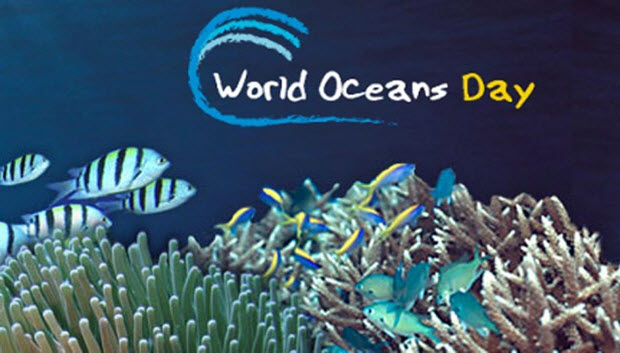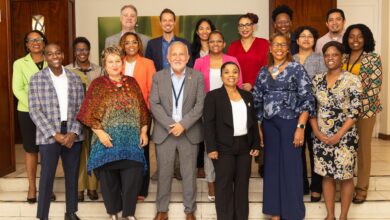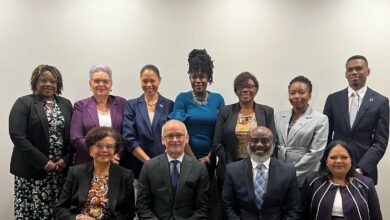It gives me pleasure to bring greetings as the International Community marks World Environment Day on 5 June and World Oceans Day on 8 June. This year finds both celebrations having synergistic themes namely “Beat Plastic Pollution” (World Environment Day) and “Preventing plastic pollution and encouraging solutions for a healthy ocean” (World Oceans Day). 2018 also marks the celebration of the Third International Year of the Reef (IYOR). It is therefore timely that as Small Island and Low-Lying Coastal Developing States (SIDS), the CARICOM Region pauses and focuses on our ocean resources and the threat of plastic pollution.
The themes for this year’s observances mark the growing alarm at the level of plastic pollution in our oceans. The United Nations (UN) has provided figures that show more than 13 million tonnes of plastic leak into the oceans each year with 100,000 marine animals killed by plastics annually. Projections indicated that plastic production will double in the next 10 to 15 years, which means that if the world continues with a Business as Usual scenario there will be more plastics than fish in the ocean by 2050.
The UN is warning that plastic pollution now stands as one of the biggest environmental challenges of our time. The CARICOM Region recognized that this is indeed a major threat. Through the work of CARICOM technical agencies, especially the Caribbean Public Health Agency (CARPHA), initiatives for the management of plastics to reduce the impacts on the environment have been undertaken.
Specifically there are ongoing marine litter management programmes through collaboration between CARPHA and the UN Environment Programme – Caribbean Regional Coordinating Unit (UNEP/CAR-RCU). Additionally, under the Global Environment Facility funded Integrating Water, Land and Ecosystems Management in Caribbean Small Island Developing States Project (GEF IWEco) being co-executed by CARPHA and UNEP, a research component will focus on marine litter impacts on the environment and biodiversity including microplastics.
While these initiatives are positive, we are still concerned by the data which informs us that five trillion plastic bags are used each year and one million plastic bottles are bought each minute. More disturbingly 50% of all consumer plastics are single use. It is evident therefore that we need to look meaningfully at our consumption and production patterns. At the regional level tackling this issue which threatens both marine and human well-being requires the cooperation and collaboration of both public and private sectors together with our academic institutions and civil society, especially our consumer and youth groups.
Together as a Region we must take action including:
Scaling up and replication of best practices in the management of plastics such as returnable bottles schemes in some Member States;
Research and development in plastic free alternatives by our universities;
Upscaling initiatives through the organisations such as Chambers of Industries and Commerce enabling members to be more aware and interested in investments in plastic free initiatives such as “Bring Your Own Bag”;
Examination of fiscal policy to consider a variety of measures including, for example, incentives for waste diversion and recycling initiatives which will facilitate the reduction of the volume and impacts of plastics on the environment;
Development of national and regional capacities for the management of solid waste, marine litter and enforcement of regulations.
It is evident that a concerted effort at the regional and national levels will be needed to provide greater buy-in to address the issue of plastic waste management. Consumers will no doubt play an important role especially as it relates to single use plastics. Business as usual is no longer an option for us especially when we factor in potential impacts on the tourism industry and the aftermaths of disasters which exponentially increase the amount of waste that our national infrastructure has to process.
As we prepare for the Regional Mid-Term Review of the SAMOA Pathway (SIDS Programme of Action) which will take place in Belize in August 2018, it may be necessary to analyse this global challenge and how it impacts SIDS.
As a Region we have to accept that lifestyle changes and change of behavior to good environmental practices is required. We must do our best to protect our CARICOM environment.






